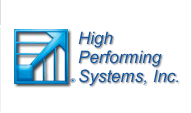Debra Cannarella
VP of Operations, High Performing Systems, Inc.
Dr. Dick Thompson, President and CEO of High Performing Systems, Inc., and author of The Stress Effect: Why Smart Leaders Make Dumb Decisions—And What to Do About It, often shares the following leadership insight with executives he coaches: when stress goes up, IQ, Emotional Intelligence and decision making effectiveness go down. This is such a critical relationship that Dr. Thompson advises leaders to tattoo the statement on the backs of their eyelids so they can be reminded about it every time they blink. With stress around the world at an all-time high, it’s especially important now to help leaders manage all the components of this dynamic relationship. We will look at each area briefly in turn.
If stress causes the negative effects described above, one strategy is to try to reduce stress as much as possible. Not every source of stress can be completely eliminated, but leaders can make adjustments that will have a significant overall impact. Breaking larger problems into smaller pieces, for example, is a good first step. Another strategy is building resilience. Studies show that there are many proven best practices to boost resilience, such as getting adequate rest, improving self-awareness and having a strong support system.
When it comes to self-awareness and support systems, improving those areas will have a direct and reciprocal impact on Emotional Intelligence (EI) as well. Understanding and managing one’s own emotions and building successful relationships with others are at the heart of EI. A leader with a higher starting point in EI skills will maintain EI abilities longer under stress than leaders who don’t have as many EI skills to begin with. Organizational leaders from the supervisor level all the way to the CEO need to build EI capacity to have a stronger EI base. Receiving feedback and working on action plans to improve EI are critical in helping leaders boost their EI capability. The more EI ability leaders have before they encounter stress, the longer they will be able to maintain their EI effectiveness as stress increases.
Stress can cause smart people to make dumb decisions. Some leaders can handle low to moderate levels of stress without too many issues. When stress is elevated to high or very high levels, however, most leaders will notice the impact of stress on their ability to think quickly, recall critical information and facts, and choose the best decision in each situation. The good news is that leaders can be trained to maintain decision making effectiveness for a longer duration, even under high stress. With the proper training and practice on the techniques, leaders who work in very high-stress jobs can improve their decision making effectiveness.
Even though we can’t eliminate all sources of stress, we can help leaders manage stress better by building resilience, improving Emotional Intelligence and learning techniques to maintain IQ and decision making effectiveness. In order to achieve these desired results, leaders first need feedback on their starting point or baseline. Assessments such as the EQ-i® or ARSENAL™ are great tools to help leaders improve self-awareness. Then leaders need to learn new tools and techniques to apply when facing stress. Training in topics like Decision Making Under Stress or Emotional Intelligence are essential for leaders who are required to make decisions under high stress. And lastly, leaders must continue to practice what they learn. They cannot simply attend one class and think they are ready. Continuous reinforcement will help leaders turn their new skills into the dominant response when stressors hit.
When those steps are followed, leaders can minimize the negative effects of stress. If the starting point for EI, IQ and decision making effectiveness is higher, leaders will maintain effectiveness for a longer duration, even when stress does increase. The adage from Dr. Thompson will still occur, but the better-trained leaders will be more resilient for a longer duration of time. This will give those leaders the skills to outperform their untrained peers and have an advantage when it comes to organizational success.
For a printable PDF of this article, click here.
_____________________________________
Debra Cannarella is the VP of Operations at High Performing Systems, Inc. (HPS), a consulting company that provides assessments, consulting and training solutions to help organizations excel. HPS conducts certification training on the EQ-i 2.0 assessment and provides individual, leader and executive coaching to clients. Contact Debra by email at debra@hpsys.com.
High Performing Systems is an award-winning world leader in EQ-i 2.0® certification (since 2005), EI training and implementation, leader coaching and success profiles. Call 706-769-5836 to talk with an experienced EI practitioner about your organization's specific needs. |
